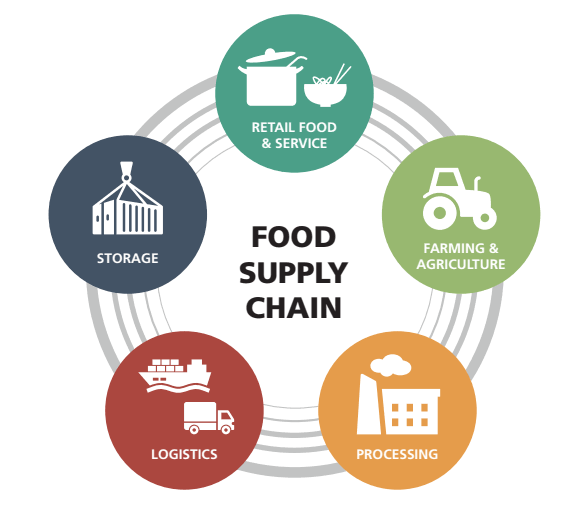African agriculture is a vital sector that employs millions of people and contributes significantly to the continent’s GDP. However, the sector faces numerous challenges, including inefficient supply chains, post-harvest losses, and limited access to markets. Supply chain management (SCM) applications can play a crucial role in addressing these challenges and enhancing the efficiency and productivity of African agriculture.
Challenges in African Agricultural Supply Chains
African agricultural supply chains are often characterized by:
- Inefficient logistics: Poor road infrastructure, inadequate storage facilities, and limited transportation options lead to delays, losses, and increased costs.
- Limited access to markets: Smallholder farmers often lack access to formal markets, making it difficult for them to sell their produce at competitive prices.
- Post-harvest losses: Inadequate handling, storage, and transportation practices result in significant post-harvest losses, reducing the quality and quantity of produce.
- Information asymmetry: Farmers lack access to market information, making it difficult for them to make informed decisions about planting, harvesting, and pricing.
Supply Chain Management Applications in African Agriculture
SCM applications can help address these challenges by:
- Improving logistics: Implementing efficient logistics systems, such as GPS tracking and route optimization, can reduce transportation costs and times.
- Enhancing market access: Digital platforms can connect farmers to formal markets, enabling them to sell their produce at competitive prices.
- Reducing post-harvest losses: Implementing proper handling, storage, and transportation practices can minimize losses and maintain produce quality.
- Providing market information: Digital platforms can provide farmers with real-time market information, enabling them to make informed decisions.
Examples of SCM Applications in African Agriculture
- Digital platforms: Platforms like Twiga Foods (Kenya) and Farmcrowdy (Nigeria) connect farmers to markets, provide financing, and offer extension services.
- Mobile-based solutions: Solutions like M-Farm (Kenya) provide farmers with market information, enabling them to negotiate better prices.
- Logistics optimization: Companies like Kobo360 (Nigeria) use digital platforms to optimize logistics, reducing transportation costs and times.
- Blockchain technology: Blockchain-based solutions, such as Farmwise (South Africa), can enhance transparency and accountability in supply chains.
Benefits of SCM Applications in African Agriculture
- Increased efficiency: SCM applications can reduce transportation costs, times, and losses, increasing the efficiency of supply chains.
- Improved market access: Digital platforms can connect farmers to formal markets, enabling them to sell their produce at competitive prices.
- Enhanced productivity: SCM applications can provide farmers with access to extension services, financing, and market information, enhancing their productivity.
- Increased income: By reducing losses and improving market access, SCM applications can increase farmers’ incomes, contributing to poverty reduction and economic growth.
Challenges and Opportunities
While SCM applications have the potential to transform African agriculture, several challenges need to be addressed, including:
- Infrastructure limitations: Poor infrastructure, such as roads and storage facilities, can limit the effectiveness of SCM applications.
- Digital literacy: Limited digital literacy among farmers can hinder the adoption of digital SCM applications.
- Regulatory frameworks: Unclear or inadequate regulatory frameworks can create uncertainty and limit the growth of SCM applications.
Despite these challenges, the opportunities for SCM applications in African agriculture are significant. By leveraging digital technologies and innovative business models, SCM applications can enhance the efficiency, productivity, and competitiveness of African agriculture, contributing to economic growth, poverty reduction, and food security.
Conclusion
Supply chain management applications have the potential to transform African agriculture by enhancing efficiency, productivity, and market access. By leveraging digital technologies and innovative business models, SCM applications can address the challenges facing African agricultural supply chains, contributing to economic growth, poverty reduction, and food security. As the sector continues to evolve, it is essential to address the challenges and opportunities associated with SCM applications, ensuring that they are tailored to the needs of African farmers and agribusinesses.

